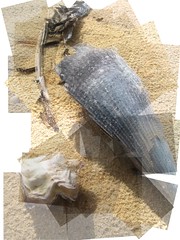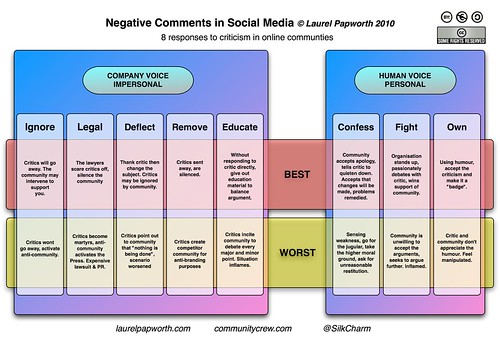 Carl Jackson of Westhill Knowledge Group (formerly at IDS – Institute of Development Studies), colleague at KM4Dev, friend and all around smart and funny guy took 20 minutes to share some of his experiences supporting and participating in online communities in international development. He has worked with a number of IDS’s Eldis communities, including Africa Adapt. While you can peruse the communities’ websites, nothing replaces hearing about the practice of stewarding and participating IN the community.
Carl Jackson of Westhill Knowledge Group (formerly at IDS – Institute of Development Studies), colleague at KM4Dev, friend and all around smart and funny guy took 20 minutes to share some of his experiences supporting and participating in online communities in international development. He has worked with a number of IDS’s Eldis communities, including Africa Adapt. While you can peruse the communities’ websites, nothing replaces hearing about the practice of stewarding and participating IN the community.
Click below for a listen — it’s about 18 minutes packed full of practical advice.
Carl Jackson on Online Communities in Development
Here are some of the nuggets I extracted:
- People are seeing online communities and networks as core instruments of how we work.We can now cheaply create broad based activist networks. For example, Africa Adapt – with participatory researchers, policy makers, community advocates around climate adaptation. In 1.5 years built a sense of community, and has organized F2F events at a continental level. Used to be much harder to get off the ground. Now people prepared to give it a go or at least a benefit of a doubt.
- Focus, focus, focus: Carl reinforced the importance of subject specific focus… this then attracts a specific kind of people
- Some groups are harder to attract than others. On the whole, the one group where it has been harder to get awarness and buy in is with is the scientists in climate science community. In international development there is quite a strong divide between the natural scientists and social scientists. They have different networks and ways of sharing knowledge.
- Policy makers CAN be attracted with focused offerings. Within Eldis communities had a debate between experts on food security and gender, convened by BRIDGE at IDS. Researchers and policy makers from a range of organizations.
- Preparation for events matters. With a focused, short time frame event, they did substantial bilateral engagement w/ potential participants 3-4 weeks leading up to the date. A lot of work went into brainstorming themes they could focus on in the discussion, and in gathering and synthesizing brief bios of participants. They noticed in other discussions of this type a lot of initial energy gets soaked up in introductions, getting comfortable.
- Open conversations with less clear focus are still important. People are looking for more increasing awareness of the landscape, who the actors are, events are, values and languages. For that kind of orientation, open discussions are still really valuable. They allow you to discover things. In time delimited, you drill down, but not much discovery.
- Why has ELDIS community succeeded? Primary value of ELDIS communities: be in there for the long haul. When the communities were set up there were other spaces like that, but the level of demand for ELDIS communities and level of initial participation was quite low. When you have short term performance requirements — could have bombed quickly. But the grant makers that work w/ IDS have a longer strategic vision about the value of collaboration, bringing in diverse and little heard voices — commitment was there. Seedbed for initiatives.
- Reputation still matters: IDS has been able to – because it has established reputation for research and training beyond its online work gives a certail level of brand recognition and associated knowledge resources on the broader Eldis portal. Quality and back up that can be hooked into community spaces. Drawing on the resource guides.
- Individually driven spaces require less support. The largest number on ELDIS are set up by members for a blog or event, sharing documentation or share videos. They are doing stuff in a very unsupported way beyond the provision of technical support and troubleshooting advice for things like setting up profiles and adding functionality to their personal spaces.
- Events benefit from strong staffing and preparation. The Food security and gender event was part of a wider programmatic effort around that subject, purpose of gathering knowledge for publication. 3 people working on the preparation for 2 day event with a 2 month lead time. Carl estimates that total time of individuals that went into prep and facilitation, follow up was 30 person days. Consider the value of convening 30 experts internationally to have a very detailed cutting edge discussion. If you’d have looked at how else, the costs of convening that kind of group logistically in a physical space – order of 5-10 x cost.
- Design as if you are in their shoes. In thinking about design, especially new group coming together, it is important to try and think your way into where they are coming from, scenarios they might consider participating in. That’s a way of designing a process that leads to an online collaboration with as little logistical friction, anticipates some of the interests and needs they may have. Policy makers want a tractable output of feedback to policy. Researchers want highlights of current research or gather ideas for new research topics. Put yourself into the shoes of the participants and construct a process that is useful for both participants and commissioners of the event.
- Light facilitation rules the day. Now that people are much more comfortable participating in online spaces, the facilitation needs to be when it is live needs to be much more light touch. People don’t need so much hand holding. Facilitation
 should not be acting as chair of discussion– neither necessary or helpful. More about holding the space, backchannel matchmaking/connecting, draw out the quite – pastoral care behind the scenes. Then the energy the participants bring to the discussion doesn’t get blocked. I don’t think you can lead discussions online, you can only nudge them
should not be acting as chair of discussion– neither necessary or helpful. More about holding the space, backchannel matchmaking/connecting, draw out the quite – pastoral care behind the scenes. Then the energy the participants bring to the discussion doesn’t get blocked. I don’t think you can lead discussions online, you can only nudge them - Any other advice? It’s important – when the community does come together in a good way, has a powerful discussion, important to translate that something as quick as possible into something tangible. There are often good intentions of producing outputs, but the wheels grind slowly, nice polished in 3 months. You have to be prepared to quickly synthesize and publish some kind of project. Rough and quick is better than polished and slow. They can immediately get the extra value.
You can find Carl on his company website, www.wkg.uk.net or on Twitter at @Carl_WKG

 should not be acting as chair of discussion– neither necessary or helpful. More about holding the space, backchannel matchmaking/connecting, draw out the quite – pastoral care behind the scenes. Then the energy the participants bring to the discussion doesn’t get blocked. I don’t think you can lead discussions online, you can only nudge them
should not be acting as chair of discussion– neither necessary or helpful. More about holding the space, backchannel matchmaking/connecting, draw out the quite – pastoral care behind the scenes. Then the energy the participants bring to the discussion doesn’t get blocked. I don’t think you can lead discussions online, you can only nudge them A tweet led me to a post today at
A tweet led me to a post today at 